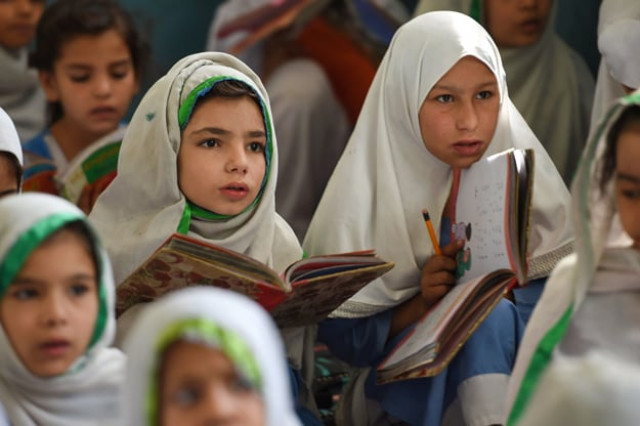Call for efforts to improve girls' education
Experts urge community engagement to boost school enrolment rates

Speakers at a panel discussion titled 'Women's Education and Social Gains' emphasised the need for community engagement to improve girls' school enrolment rates.
The panellists on the sidelines of 'International Conference on Girls' Education in Muslim Communities: Challenges and Opportunities' highlighted the importance of women's education for development, peace, security, and justice, calling on religious scholars, media and all stakeholders to play a pivotal role.
The panel discussion, moderated by EU Envoy to the Republic of Tajikistan, Jasna Gelesic, shed light on the critical role of collective efforts in addressing educational challenges faced by girls.
UNICEF's Deputy Representative in Pakistan, Sharmila Rasool, stressed the importance of improving school enrolment rates through community involvement.
She welcomed Pakistan's recent efforts in hosting the global conference and noted the significant progress made over the past two decades in increasing school enrolment.
She also mentioned that the Prime Minister's Educational Emergency Program has started yielding substantial results, though broader societal support is needed to sustain these efforts.
Other speakers in the discussion underscored the necessity of involving all segments of society, stating that no ministry or international organisation can achieve these goals alone. A cultural shift in mindset is crucial to ensuring sustainable improvements.
Head of the Research Department at Uzbekistan's Center for Islamic Civilization, Dr Gulnara Janiyeva, highlighted the need to correct misconceptions about Islam, emphasising that Islam advocates for equal education.
She stated that girls' education is essential for achieving development, peace, security and justice, but community-wide participation is vital for achieving enrolment goals for out-of-school children.
Permanent Observer for the University of Peace in Switzerland to the UN and UNESCO, David Fernandez Puyana, pointed out that addressing challenges in women's education requires eliminating gender discrimination.
He lauded Pakistan's efforts in promoting gender equality, women's empowerment and girls' education, acknowledging the progress made but emphasising the need for further improvement. He also called for the implementation of the Islamabad Declaration, which could bring significant advancements.
President of Jamiyah Islamiyah Singapore, Dr Mohamad Hasbi bin Abubakar, stressed the importance of leveraging human resources to improve education. He shared Singapore's efforts in building an ecosystem to enhance women's education, livelihood and development despite its small size.



















COMMENTS
Comments are moderated and generally will be posted if they are on-topic and not abusive.
For more information, please see our Comments FAQ